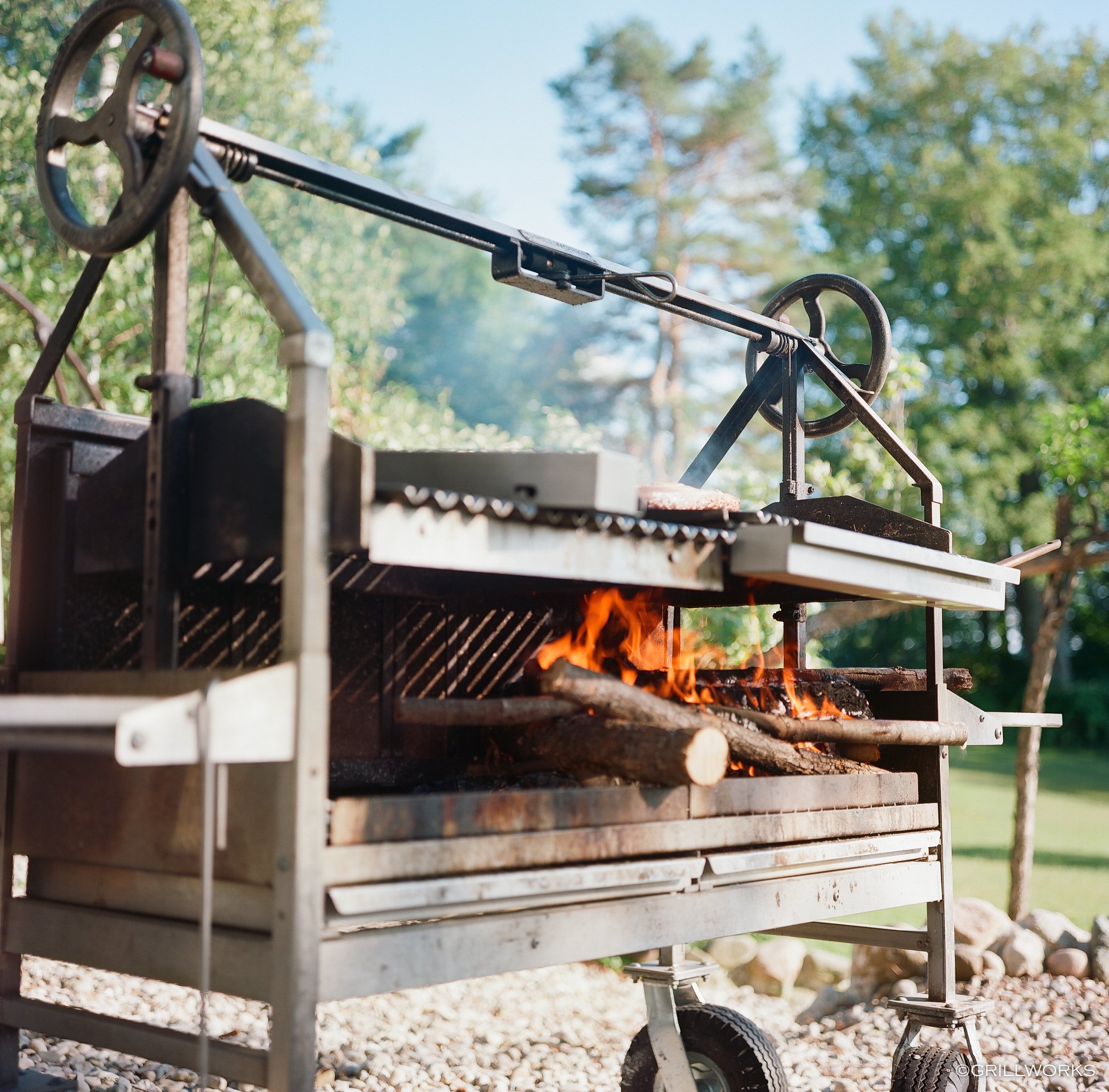When It Comes to Grilling, Pollution Is Perfection
I was raised wood-cooking over orchard trimmings and forest-wood, culled from our farm.
The year was 2010, and I was in Restoration Hardware looking for a couch. The store, new at the time, was a guilty pleasure. A shrewd collection of objects I knew I should've picked up at one hole in the wall or another. Stock a million gadgets I walked by somewhere else, price them at an [ehem] premium, and then tell me in clever copy why I shouldn't have passed them up the first time.
It occurred to me on the way out that my grills might fit well in their array of eclectic cooking tools.
Much like the wine aging in a cask, a grilled dish is colored by flavors from the substances the wood releases.
I was fresh off a year of grilling outside with Whole Foods. To their credit I'd found each store, and above them each region, exceedingly autonomous, geared to finding and forming quick partnerships with local producers. I'd simply called the stores I was interested in and they were generally happy to do co-promotions that displayed their food on my wood grills. It got me wondering if this edgy retailer might be as easy to work with.
I approached the clerk.
She told me that I'd have to talk to Corporate. As she scrawled the 800 number down for me she asked why I thought they'd be a good fit at Restoration Hardware. I told her that they're handmade, tactile, and unusual-looking, like many of the tools that Restoration chooses to carry. I handed her a brochure. While she looked at it I told her that my Grillworks grills are designed for natural wood fuel. She stiffened and put the brochure down, then glared at me through trendy horn-rimmed glasses.
"I work for the EPA, and do you know that you're releasing harmful particulates and pollutants burning that wood?"
There we were, at the immaculate Restoration Hardware checkout, looking at each other over a jar of handy 12-in-1 screwdrivers sets, teeth bared. I fired back, "I studied Environmental Sciences and happen to know that burning wood has exactly the same environmental impact as it does rotting on the forest floor." She sniffed.
The forest surrounding our farm, where Grillworks, and I, began
"Do you grill?" I asked.
"No."
Okay. When you apply clean heat to food—and in this case I mean electric; the gas conversation is for another time—predictable chemical reactions occur. These alter the target of the heat, and in the case of dinner, cook it. Given the same dinner dish and the same temperature you will get exactly the same result every time.
No such consistency with a wood fire. The heat is being produced by a dirty flame. Your wood contains moisture stored from the previous growing season. It holds the minerals accumulated from decades existing where it did. Sun. Rain. Good years. Bad years. That same dish is cooking in years of history. Years of seasons.
Serious wine people never assume a bottle is great just because it comes from a recognized vineyard or vintage. There is an acceptance that each pouring will be different. Suspense with each cork pull. The product is organic, from the ground to the grape to the harvest to the cask to the cork. The grape is not alone in that bottle.
Much like the wine aging in a cask, a grilled dish is colored by flavors from the substances the wood releases. It is no coincidence that in both disciplines oak is the trusted statesman; its structure and character lends predictable mellow flavor to wine and food alike. But in grilling, oak is just the beginning of the wood conversation. There are a host of other hardwoods to explore in cooking fires, and like the difference between vintages at the same vineyard, each fire, even burning the same species of wood, brings different nuances to dinner. Some will have more parts moisture, burning cooler and producing more intense smoke, while others will burn dry and hot, releasing leaner flavors. Commanding years of these fires can make a flame vintner out of you, just ask Grillworks friend Francis Mallmann.
When you cook food or age wine in wood you're polluting it.
So in a long-overdue answer to that clerk at Restoration Hardware—I'll take my dinner grilled over a filthy wood flame every day of the week, thank you very much, with a dirty glass of wine.
(And I'll take that couch)
Dad enjoys an oak-aged Irish Whiskey while judging my grilling abilities next to the wood pile




